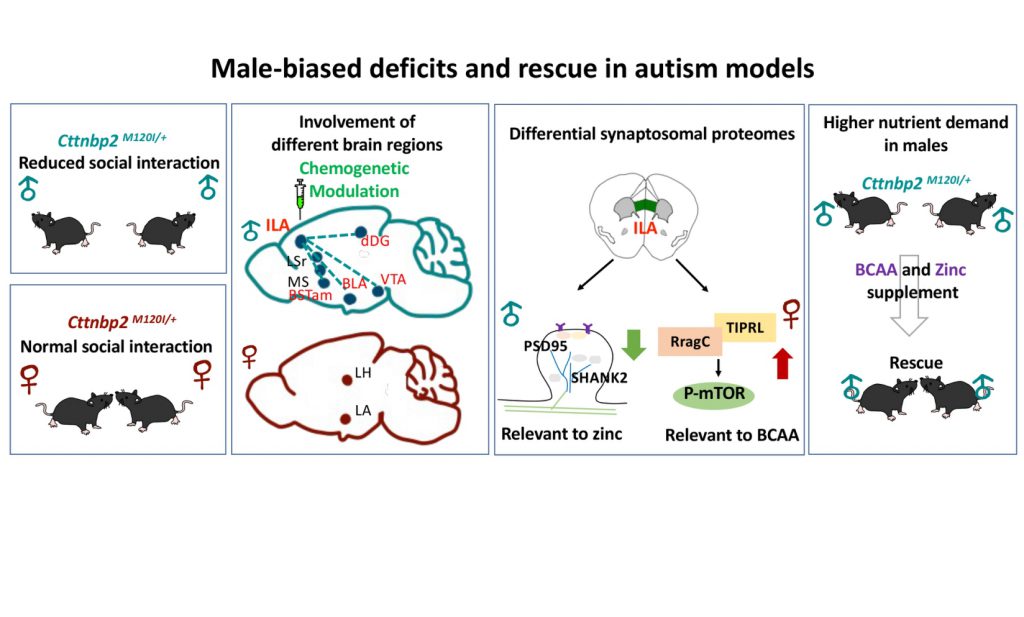Dr. Yi-Ping Hsueh’s team at the Institute of Molecular Biology used autism model mice to reveal how autism spectrum disorders exhibit a higher prevalence in males compared with females. Autism-linked mutation of Cttnbp2 gene results in impairments in synapse density, neural circuits and social behavior in male mutant mice but not female mutant mice, suggesting that the females are tolerant of the autism gene mutation.
By analysis of synaptic proteomes, the team further demonstrated that nutrient supplements, including branched-chain amino acids and zinc, can effectively alleviate social behavioral impairments and restore neuronal activity in mutant male mice. Since males have a higher demand for branched-chain amino acids and zinc, it is suggested that the crosstalk between nutrient demand and autism gene mutations is relevant to sex bias in autism.
The study has just been published in the prestigious international journal “BRAIN“. Three reviewers of BRAIN all highly praised this paper, believing that the research results have an impactful contribution to the issue of sex bias in autism and provide possible dietary therapy to improve the behavioral deficits of autism.
In addition to the aforementioned paper, Dr. Hsueh’s team also studied various autism mutant mice and found that branched-chain amino acids and zinc can improve the social behavior of different autism mutant mice, enhancing the potential role of nutrient supplementation in improving autism.
The first author of the new paper published in BRAIN is Tzu-Li Yen, a PhD student of TIGP-MCB program, Academia Sinica and National Defense Medical Center. The work was supported by Investigator Award of Academia Sinica to Yi-Ping Hsueh.
Article link:https://doi.org/10.1093/brain/awac429
For further information:
1.https://www.sciencedirect.com/science/article/pii/S2589004220311469?via%3Dihu
2.https://actaneurocomms.biomedcentral.com/articles/10.1186/s40478-020-01053-x
3.https://www.sciencedirect.com/science/article/pii/S2211124720308160?via%3Dihu
4.https://www.sciencedirect.com/science/article/pii/S2211124720306707?via%3Dihu
5.https://www.ncbi.nlm.nih.gov/pmc/articles/PMC4800434/

